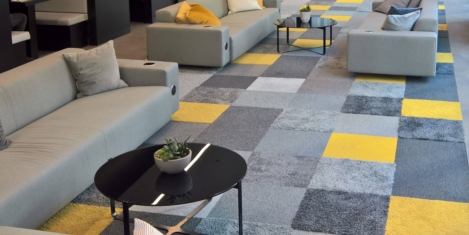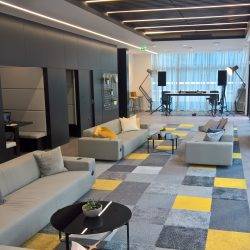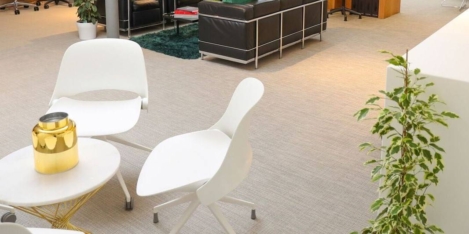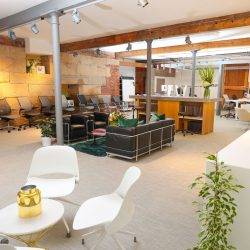December 20, 2018
Cyber security fears as employees and ex staff able to access sensitive company data
 Huge numbers of employees have or have had access to mission critical company systems which should be reserved only for staff that require it, claims a new study by CyberArk. Specifically, it found that almost half (48 percent) of employees have or have had access to sensitive financial documents; 46 percent to confidential HR information; nearly a third (29 percent) have or have had direct access to company bank account and over a third (37 percent) access to research and development plans or blueprints for new products/services. Credential theft remains the most common and effective route to a successful cyber-attack.
Huge numbers of employees have or have had access to mission critical company systems which should be reserved only for staff that require it, claims a new study by CyberArk. Specifically, it found that almost half (48 percent) of employees have or have had access to sensitive financial documents; 46 percent to confidential HR information; nearly a third (29 percent) have or have had direct access to company bank account and over a third (37 percent) access to research and development plans or blueprints for new products/services. Credential theft remains the most common and effective route to a successful cyber-attack.

















 The European property sector is predicted to grow next year, according to CBRE’s 2019 EMEA Market Outlook report. Although recent indicators suggest some slowing of momentum economic growth in Europe will remain above-trend rate in 2019 and 2020, with Spain, Ireland and the central European countries expected to see the fastest economic growth. France’s growth is expected to accelerate as recent economic reforms begin to pay off; however, UK growth is expected to remain below-trend, but with better long-term potential once the current uncertainty around Brexit passes. Office markets around the region are expected to see positive growth in leasing levels in 2019. However, major European cities, including Paris, Berlin, Stockholm and London, are expected to see lower levels of employment growth in office-using sectors.
The European property sector is predicted to grow next year, according to CBRE’s 2019 EMEA Market Outlook report. Although recent indicators suggest some slowing of momentum economic growth in Europe will remain above-trend rate in 2019 and 2020, with Spain, Ireland and the central European countries expected to see the fastest economic growth. France’s growth is expected to accelerate as recent economic reforms begin to pay off; however, UK growth is expected to remain below-trend, but with better long-term potential once the current uncertainty around Brexit passes. Office markets around the region are expected to see positive growth in leasing levels in 2019. However, major European cities, including Paris, Berlin, Stockholm and London, are expected to see lower levels of employment growth in office-using sectors. 


 Flexible workers claim to work more effectively than those working a traditional ‘nine-to-five’, with a quarter of respondents (27 percent) in a recent poll saying they work longer hours in their new flexible working routine than they did when they worked normal office hours. The research, which was commissioned by the AAT (Association of Accounting Technicians) found that flexible workers think they put in almost seven hours more each week on average than they did previously. The research, which looked at the productivity of a group of workers who set their own hours or working location against a group of those who are not doing so, found that the former benefit from feeling happier and less stressed.
Flexible workers claim to work more effectively than those working a traditional ‘nine-to-five’, with a quarter of respondents (27 percent) in a recent poll saying they work longer hours in their new flexible working routine than they did when they worked normal office hours. The research, which was commissioned by the AAT (Association of Accounting Technicians) found that flexible workers think they put in almost seven hours more each week on average than they did previously. The research, which looked at the productivity of a group of workers who set their own hours or working location against a group of those who are not doing so, found that the former benefit from feeling happier and less stressed. 
 A new survey into happiness at work suggests it is viewed differently according to age. Baby boomers: aspire to have job security and think careers are defined by employers. Gen X: aspire to have a work-life balance and although are loyal to a profession will not necessarily stick with the same employer. Millennials or Gen Y aspire to have freedom and flexibility and are digital entrepreneurs while Gen Z aspire to have security and stability. The report by Instant Offices’ considered what is important to each age group, and how employers approach the age gap. It found that eight in 10 millennials look for a manager to act as a mentor or coach; Baby boomers want a boss to be ethical, fair and consistent, while 61 percent of Generation X, and 55 percent of millennials, think team consensus is important.
A new survey into happiness at work suggests it is viewed differently according to age. Baby boomers: aspire to have job security and think careers are defined by employers. Gen X: aspire to have a work-life balance and although are loyal to a profession will not necessarily stick with the same employer. Millennials or Gen Y aspire to have freedom and flexibility and are digital entrepreneurs while Gen Z aspire to have security and stability. The report by Instant Offices’ considered what is important to each age group, and how employers approach the age gap. It found that eight in 10 millennials look for a manager to act as a mentor or coach; Baby boomers want a boss to be ethical, fair and consistent, while 61 percent of Generation X, and 55 percent of millennials, think team consensus is important. 










December 17, 2018
Don’t be a turkey, get on the commercial property gravy train
by Jo Sutherland • Comment, Property
(more…)